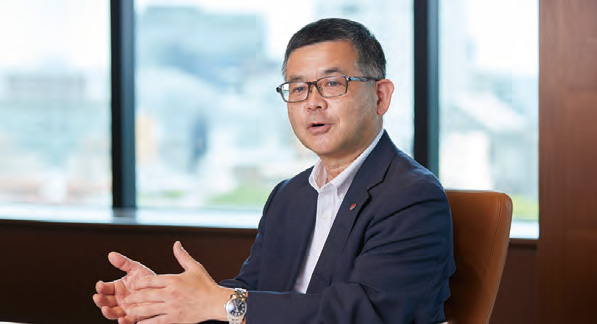With the emphasis placed on respecting human rights in corporations, Ricoh invited Mr. Hyogo of The Children Japan, two of Mr. Horie, and Mr. Tase, SDG Partners Co., Ltd., as a facilitator, to receive comments on Business and Human Rights approach and initiatives in the Ricoh Leasing Group.
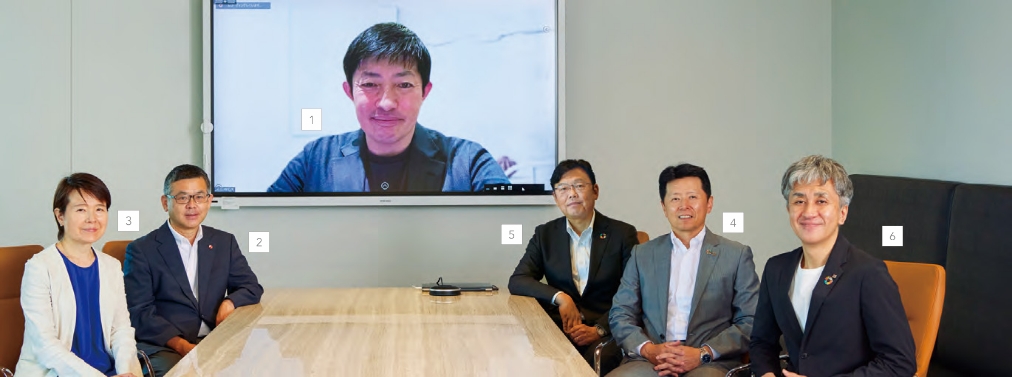
- ※We take pictures of new types of coronavirus infections with due consideration for the prevention of infection.The facilitator also participated online.
SDG Partners LLC
Representative Director CEO
Kazuo tase
He is a visiting scholar at New York University Law School.Joined the ministry of foreign affairs in 1992.He has served in the Government Nations Policy Division, Human Rights and Refugees Division, Africa Division II, United Nations Administrative Division, and First Secretary of the Permanent Mission of Japan to the United Nations.Retired in 2014.Established SDG Partners in 2017 through Deroit Tohmatsu Consulting Executive Officer, etc.
Partner Relations Department
General Manager
Koji hyodo
For about 20 years, he was in charge of media, sales, and marketing at an advertising company and an operating company.2009 Annual Save the Children Department.Managers of marketing, corporate collaboration, and fundraising.Save the Children International Company Cooperation Promotion Advisor, NGO-Corporate Cooperation Promotion Network.
Advocacy department
General Manager
Yumiko horie
After working for Kyodo News, he studied development assistance at a graduate school in the UK, and was stationed in Cambodia for an NGO project.Joined Save the Children Japan in 2002.2010 In charge of policy proposals such as development assistance policies and SDGs.Currently, we are leading policy recommendations for the realization of the rights of children at home and abroad.
Representative Director President Executive Officer
Tokuharu nakamura
Director Managing Executive Officer
(Director in Charge of Sustainability)
Hirosumi Sano
General Manager, Executive Officer Human Resources Division
Yuichi araki
Business principles with a view to children's rights
Now, as there are environmental problems such as climate change and natural disasters and threats of conflict, there are more companies like President Nakamura who carry out responsible business as they see them as investment in future generations.However, since UNGP had no perspective on children's rights, in 2012 Save the Children created 10 principles of the "Child Rights and Business Principles" (CRBP) in collaboration with the UN Global Compact.Japanese version was released in 2014.
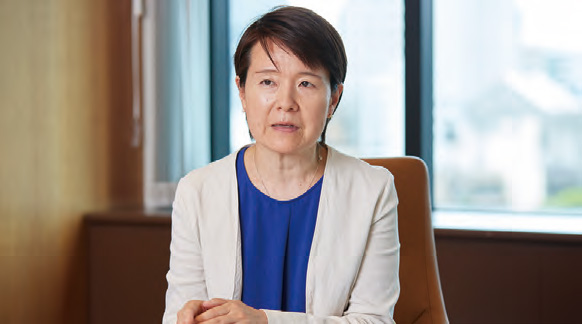
Creating a workplace that takes into account each individual's circumstances
In terms of human resources, we have been working to create a better work environment by considering work methods and processes in line with our basic stance in our management philosophy, "We will create an environment where each individual can work with respect and enthusiasm.The idea of pursuing productivity and efficiency alone has been renewed.Currently, we are expanding our support system for balancing childcare and nursing care, and few retire from work for marriage, childbirth, and childcare.In order to encourage men to take part in housework and childcare, which is a social issue, we have also established the "Childcare ☆ Challenge Leave System."I feel that the company is becoming more active by creating an environment in which employees can set their own places and times of work.
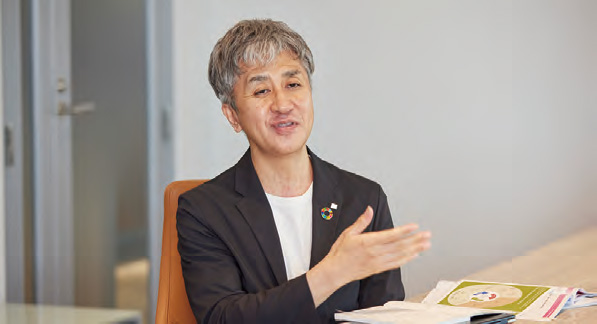
Fostering values that respect children's individuality
We are currently working to build relationships that recognize diversity through in-house training and environmental development so that each and every employee within the company can have a high awareness of human rights.It is important for parents to recognize their children as individuals, not possessions.Since the absolute values of parents and eyes are old, we will nurture new values tailored to the Reiwa Period and disseminate them outside the company.
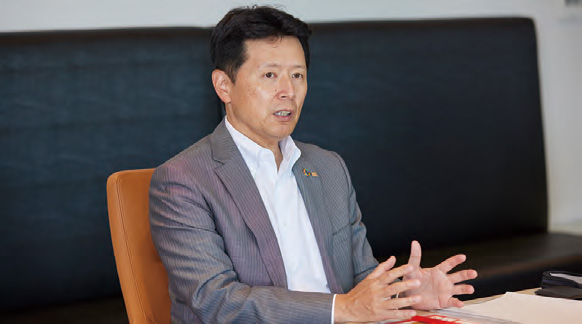
Fostering Fans for Children for the Future
In a company, new employees in their early twenties and people in their sixties who have reached retirement age work in the same workplace, and it is necessary to incorporate their respective values into an action plan.UNGP will be communicated in an easy-to-understand manner so that SMEs' customers can also tackle human rights issues.I would also like to let the children know about the company's efforts and nurture their future fans.Because the hero of childhood is an adult.We believe that these perspectives are important for sustainability management.
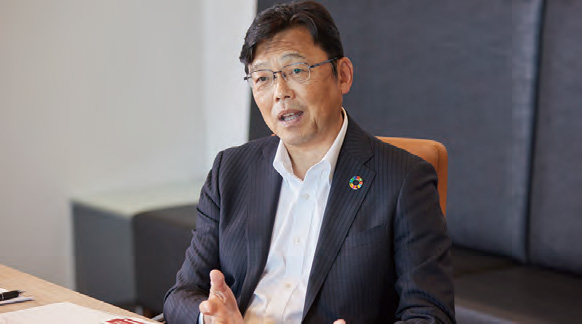
Ricoh Lease is a Leading Model to Change Society
Today, Ricoh Leasing has already decided to do so, and I have the impression that I heard a strong determination.I hope that the people of the world will recognize that children have rights, such as President Nakamura's talk about recognizing the diversity of individuals.In addition, since action plans should also be implemented by SMEs, Ricoh Lease will encourage suppliers to work in advance, which will strengthen ties with customers and serve as an opportunity to change society.
